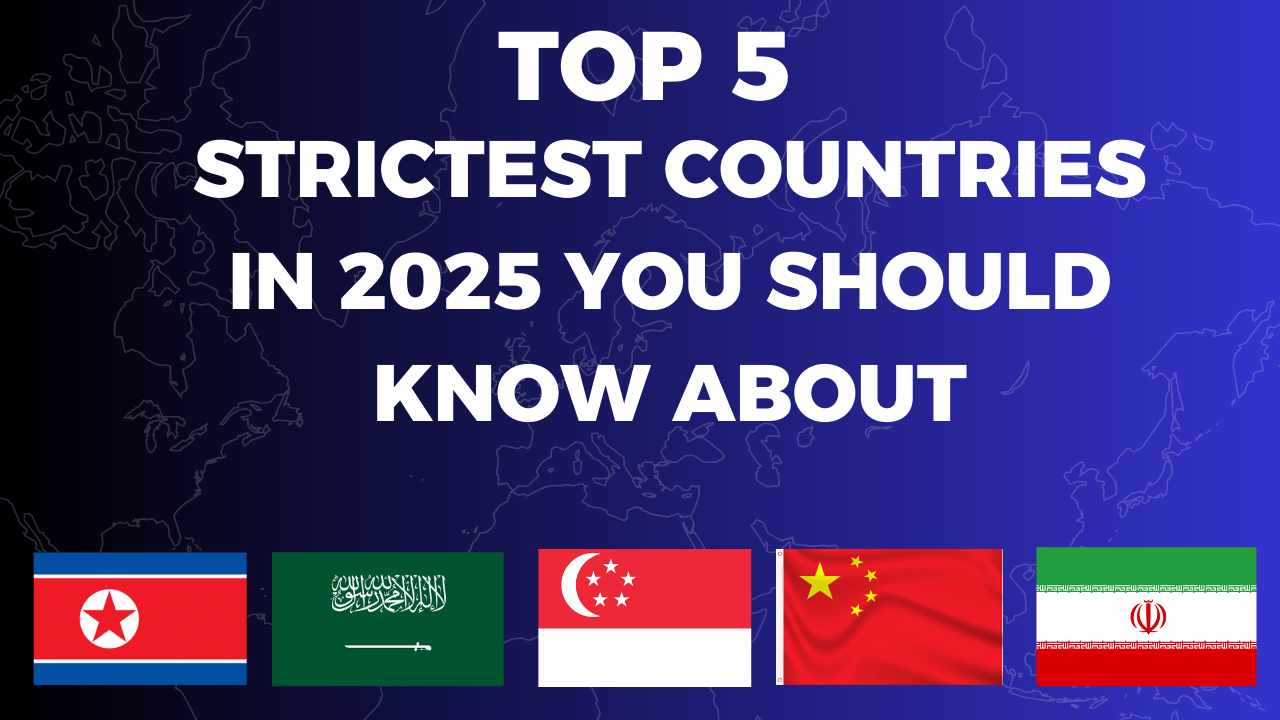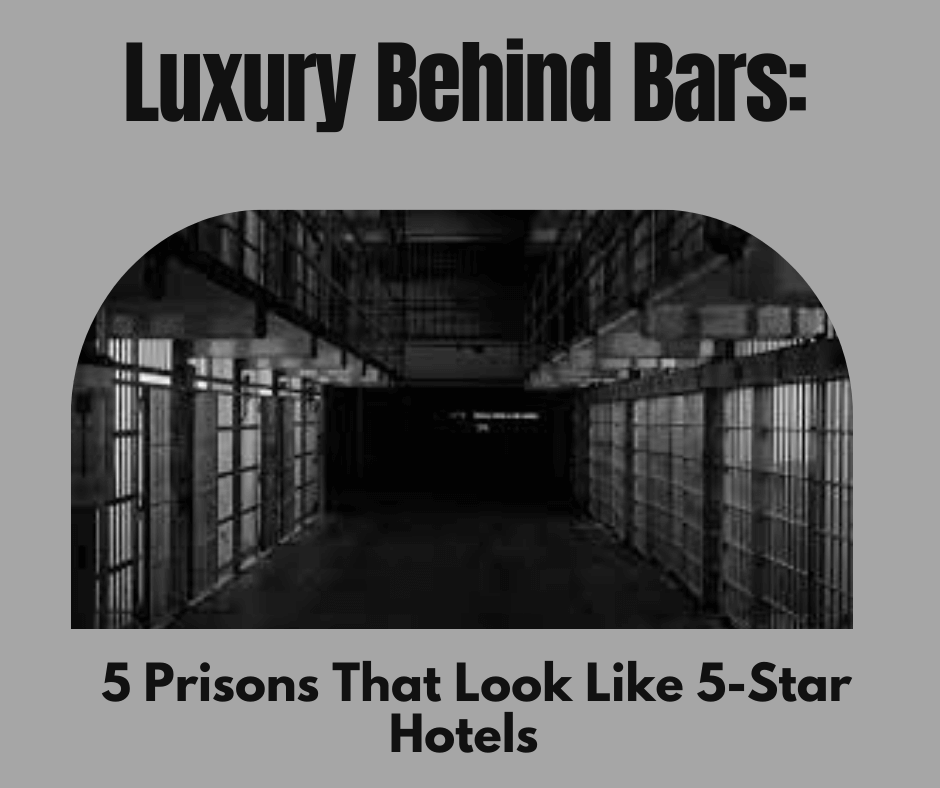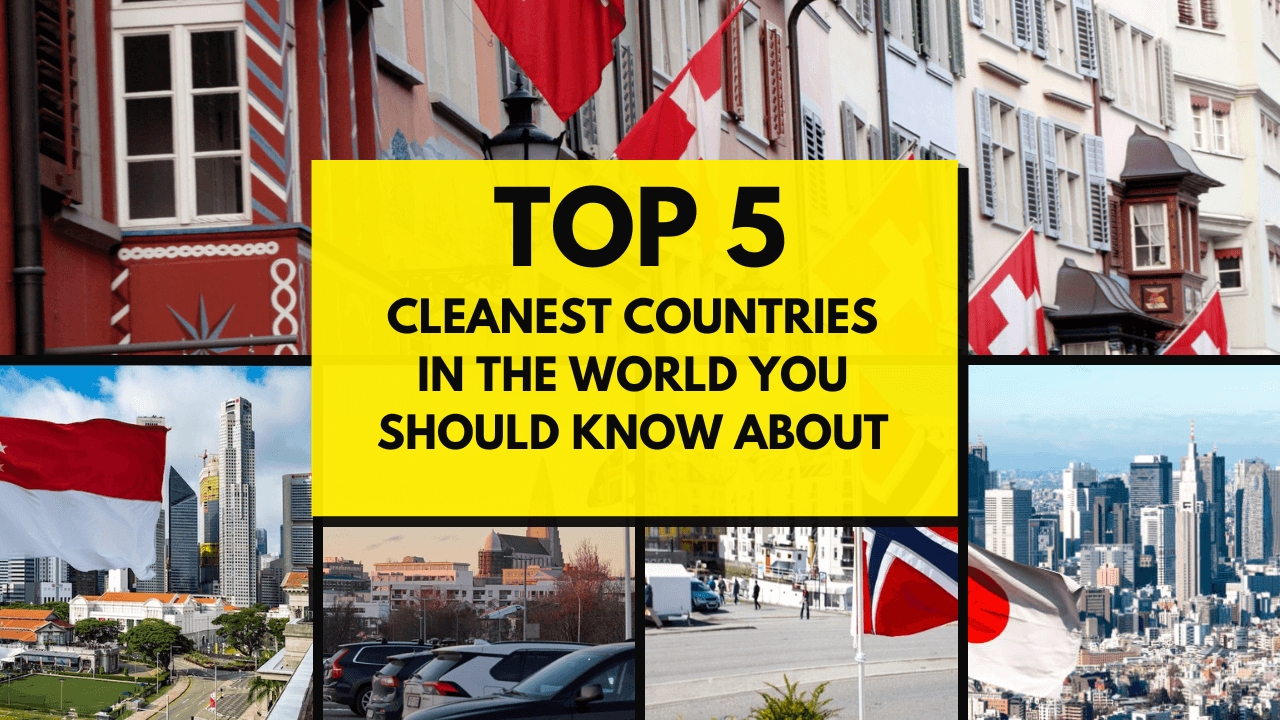Every country has its own laws, customs, and way of life, but some countries take discipline, order, and rules to the extreme. Whether you’re traveling, planning to work, or simply curious about global culture, the Top 5 Strictest Countries in 2025 You Should Know About are known for their highly enforced laws, curfews, and government controls. These countries have the tightest regulations that make them some of the most controlled nations in the world. In this article, we’ll dive deep into what makes these countries so strict, and why they are considered some of the most rigid when it comes to governance and everyday life. If you want to stay informed or avoid legal issues while traveling, knowing about these countries is essential.
1. North Korea – The Most Controlled Nation on Earth
North Korea tops the list of the Top 5 Strictest Countries in 2025 You Should Know About. This is largely due to its authoritarian regime under Kim Jong-un, which tightly controls almost every aspect of life for its citizens. The country is often described as the most isolated and controlled nation globally, and that’s because the government keeps a watchful eye on its population.
Why it’s strict:
No internet access: The vast majority of North Koreans don’t have access to the internet, and even those who do have a heavily restricted version with access only to government-approved websites.
State-controlled media: All media in North Korea is state-run and tightly censored. The government controls what the public can see, hear, and read.
Travel restrictions: Citizens cannot freely travel within or outside the country without the government's permission, making the country one of the most isolated places in the world.
Foreigners are closely monitored: Visitors are also under close surveillance, and any attempt to break the country’s strict laws can lead to severe punishment.
Fun Fact: Wearing jeans, listening to K-pop, or watching foreign movies are considered acts of rebellion in North Korea.
2. Saudi Arabia – Laws Based on Islamic Sharia
Saudi Arabia is another country that enforces very strict laws, most notably Islamic Sharia law, which governs public behavior, religious practices, and much more. As we explore the Top 5 Strictest Countries in 2025 You Should Know About, Saudi Arabia’s strict laws stand out, especially when it comes to its cultural and religious regulations.
Why it’s strict:
Alcohol ban: Alcohol is strictly prohibited in Saudi Arabia, and those caught consuming it can face severe penalties, including imprisonment or corporal punishment.
Gender segregation: Public spaces in Saudi Arabia are often divided by gender, with separate areas for men and women in restaurants, schools, and even in certain workplaces.
Strict dress codes: Women are required by law to wear the hijab in public, and dress codes are enforced in public spaces. Modesty is expected in the clothing choices of both men and women.
Criticism of the royal family: Public criticism of the royal family or religion is considered a criminal offense, and those who engage in such activities may face imprisonment or worse.
Fun Fact: Saudi Arabia has introduced some reforms, such as allowing women to drive, but many traditional laws still govern the country’s daily life.
3. Singapore – Clean, Safe, and Strict
Singapore is famous for being one of the cleanest and safest countries in the world. However, it also ranks among the Top 5 Strictest Countries in 2025 You Should Know About due to its tight regulations and strict enforcement of laws designed to keep public order.
Why it’s strict:
Heavy fines: Singapore is known for imposing hefty fines for seemingly small offenses, such as littering, spitting in public, or not flushing public toilets.
Chewing gum ban: Chewing gum is illegal unless it’s medically prescribed. The country introduced this law to maintain cleanliness in public spaces.
Strict drug laws: Singapore has some of the strictest anti-drug laws in the world. Possessing, trafficking, or consuming drugs can result in the death penalty.
No tolerance for vandalism: The government takes vandalism and graffiti very seriously, and offenders can face severe penalties, including jail time.
Fun Fact: Despite these strict laws, Singapore remains one of the most advanced and livable cities globally, with its high standard of living and reputation for safety.
4. Iran – A Country of Cultural and Religious Regulations
Iran operates as a theocratic republic, where Islamic law dictates much of the country’s policies and practices. As one of the Top 5 Strictest Countries in 2025 You Should Know About, Iran has regulations that affect everything from religious observance to social behavior.
Why it’s strict:
Mandatory hijabs for women: Women in Iran are required by law to wear a hijab (headscarf) and modest clothing in public, and violations can lead to arrest or fines.
Strict cultural rules: Iran’s government regulates much of the media, including movies, music, and even hairstyles. Western music and films, for example, are heavily censored.
Internet censorship: Many popular websites, including social media platforms, are blocked in Iran, and internet usage is heavily monitored.
No public protests: Public protests or demonstrations require government permission, and unapproved protests can lead to arrests or violence from authorities.
Fun Fact: Social media influencers in Iran are subject to government scrutiny, and failure to comply with content guidelines can lead to arrest.
5. China – Surveillance and Social Control
China rounds out the Top 5 Strictest Countries in 2025 You Should Know About due to its sophisticated surveillance state and the tight control the government exerts over its population. While China is a global leader in technology and commerce, it’s also a nation with some of the most extensive monitoring systems.
Why it’s strict:
The Great Firewall: China’s internet is heavily censored, and the government actively blocks foreign websites such as Google, Facebook, and Twitter. Citizens are instead encouraged to use government-approved services.
Social credit system: China has implemented a social credit system that tracks citizens’ behavior and assigns scores based on actions, such as paying bills on time, voting, or even social behavior.
Facial recognition: The Chinese government uses facial recognition software to track citizens’ movements in public spaces, further increasing the level of surveillance.
Limited freedom of speech: Freedom of speech and the press are highly restricted, and criticism of the government can lead to severe consequences, including imprisonment.
Fun Fact: Despite the limitations on internet freedom, China has created its own versions of social media and tech platforms, including WeChat and Baidu, which are used in place of their international counterparts.
As we’ve explored, the Top 5 Strictest Countries in 2025 You Should Know About are known for their tight regulations and control over every aspect of life. These countries impose laws that are not only designed to ensure order and discipline but also to enforce cultural and religious ideologies. If you plan to visit or work in any of these nations, it’s essential to understand the strict rules and regulations you may encounter.
Whether it's government surveillance, strict dress codes, or severe penalties for minor infractions, these countries are renowned for their rigid legal systems. Always be sure to do your research and respect local laws, as what’s considered acceptable in your home country may be illegal elsewhere. Traveling to these countries can be eye-opening, but respecting the culture and rules is key to a smooth experience.
Remember: The Top 5 Strictest Countries in 2025 You Should Know About aren’t just about tough laws they are a reflection of the governments that enforce them. Stay informed, stay respectful, and always do your research before traveling!









